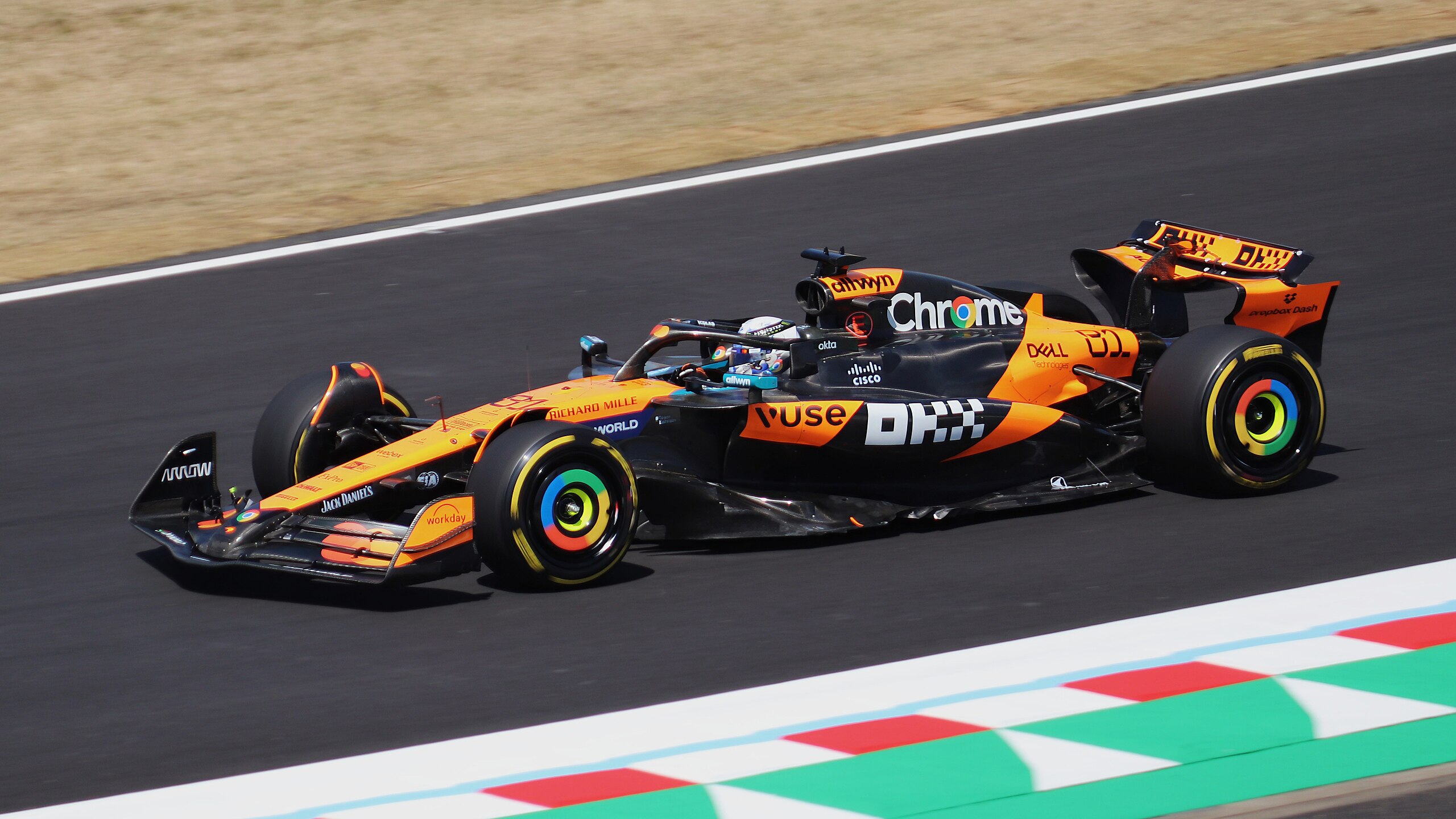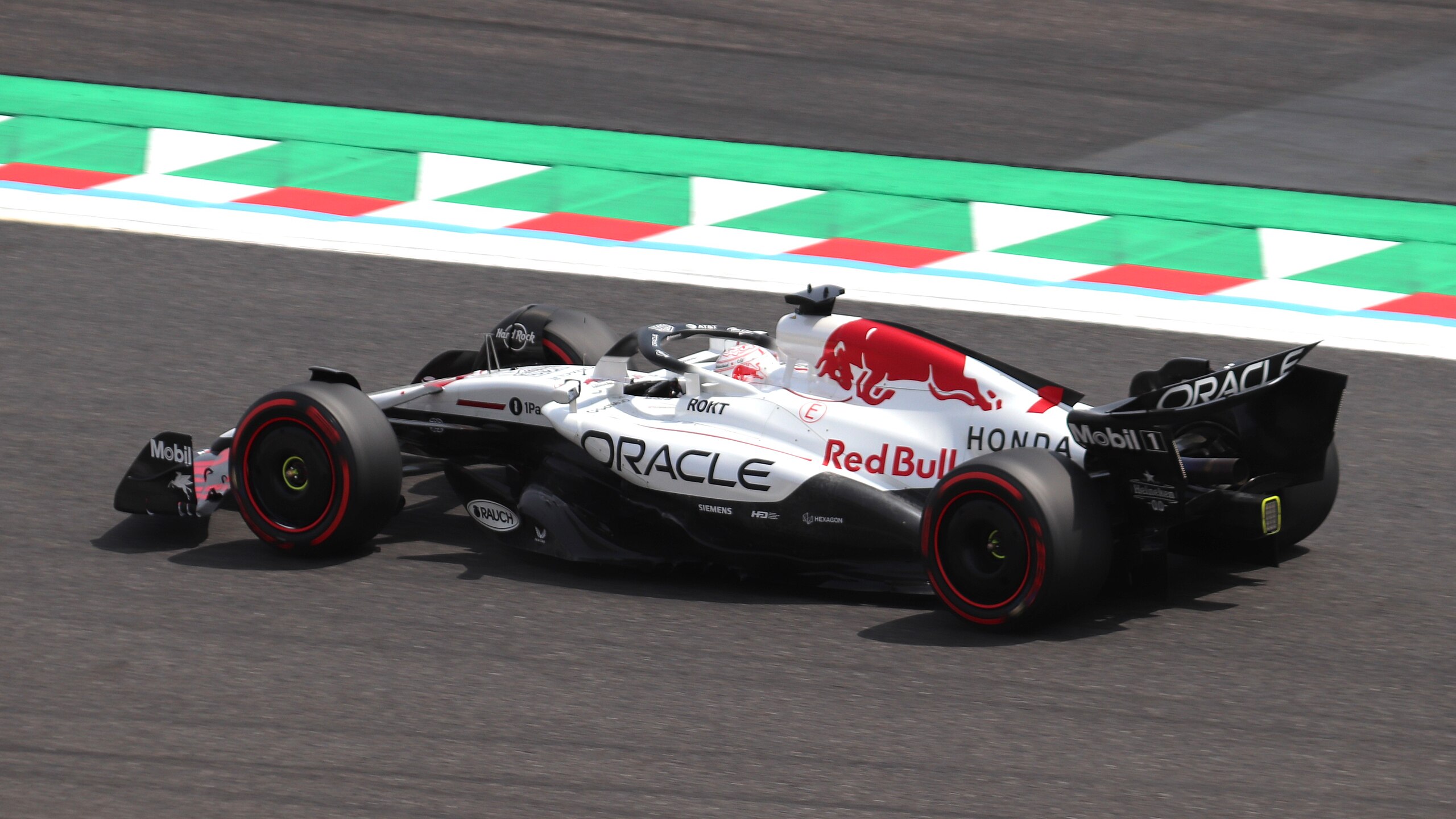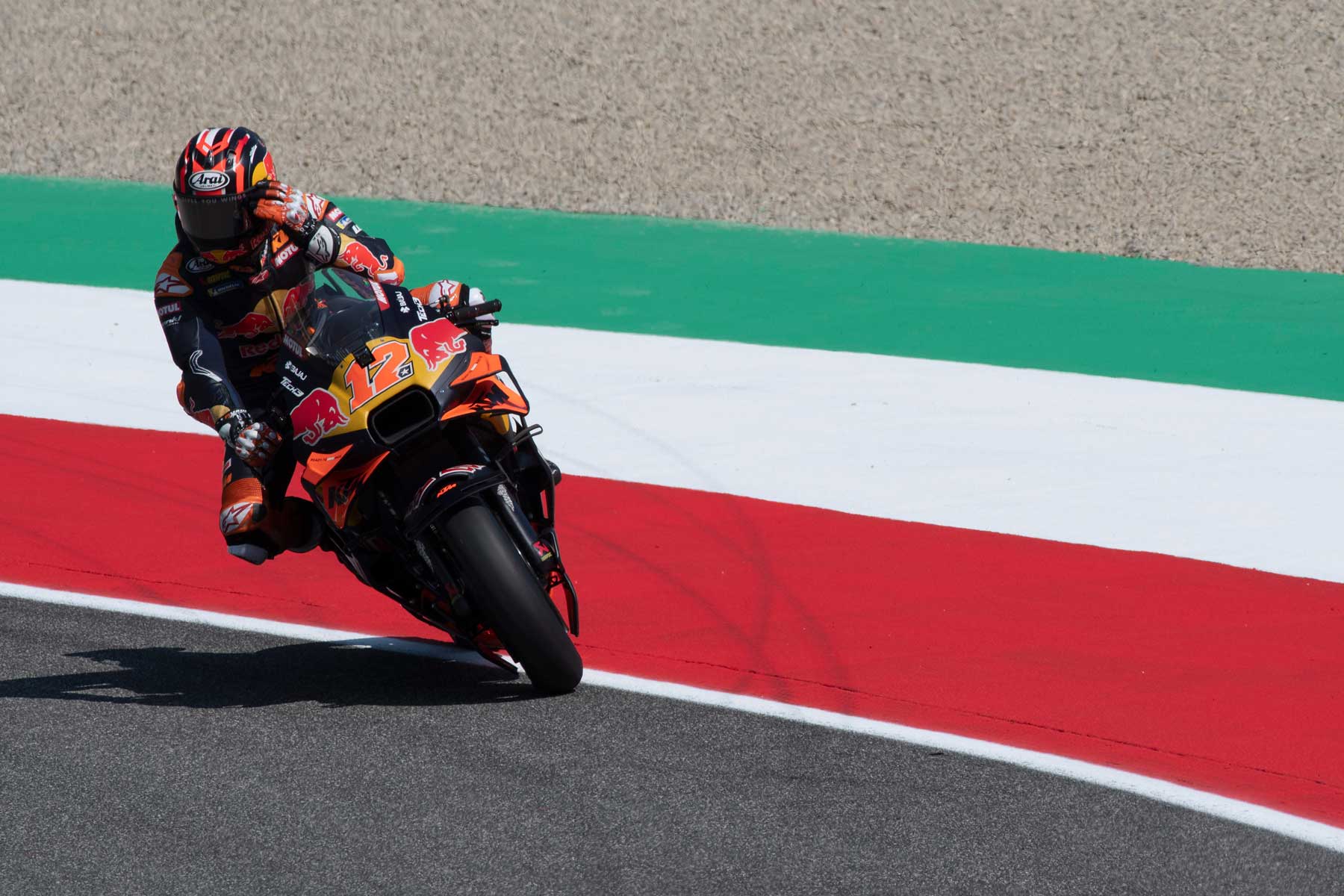Are you willing to sponsor?
Are you ready to explore the transformative power of athlete sponsorship for your brand? Click here to learn more about how sponsorship can help brands grow and thrive in the exciting world of motorsports.
By Riccardo Tafà| Posted March 12, 2020 | In Sport Sponsorship
This is both a burning and important issue: the Covid-19 emergency that has led to the cancellation of sporting events has effects on everyone involved in the sports system. The change to the MotoGP championship calendar, the postponement of the game between Arsenal Man-City in the Premiere League, the postponement of the Rugby match between Italy and England for the 6 Nations Championship and the NBA Championship cancelled overnight are just some of the examples of the numerous effects of the Coronavirus on the world of sports.
Championships, organizers, teams, related structures and all parties involved, in what is in all respects considered today an industry, suffer major repercussions. Last, but not least, we mustn’t forget those who invest in this sector: sponsors, TV, promoters and so on.

The issue is multifaceted and needs to be addressed from various perspectives. Let’s start by looking at the sector we know best, motorsport sponsorship.
There is no doubt that sponsors will inevitably suffer damage due to the cancellation of an event. In simpler terms, in addition to being unable to display their logo, sponsors cannot implement all the PR activities, including promotional and engagement, that represent a large part of the value that forms part of a sponsorship.
What can be done, therefore, to limit the damage caused to sponsorship programs by the cancellation of sporting events?
One of the ways, perhaps the most immediate, to make up for the lack of visibility of a sponsor’s brand is the creation of contents by the sponsored Team. The contents in question can be distributed on their social channels and made available to sponsors who can use them on their Facebook, Instagram and Twitter platforms. What is lost due to the cancellation of an event, can be partially recovered through other media.
It isn’t difficult to think that during a moment like this, where we are forced to stay at home, afternoons are mainly spent browsing the net, perhaps following what we are most passionate about. Distributing thematic content gives us the opportunity to obtain visibility for sponsors even in the absence of competitions. For example, providing behind-the-scenes reporting, showing how training takes place and explaining the latest technical wizardry will allow you to both keep enthusiasts interested and exhibit brands.
However, as has already been mentioned several times in these pages, when it comes to sponsorships, brand exposure is only the tip of the iceberg. Most of the activities are not visible from the outside, yet they contribute to extracting value from the transaction to a large extent, while generating a positive return on investment.
In the absence of events that bring the public to the stands or in front of the screens, sponsored teams and athletes must find other formulas to engage their audience and increase their sponsors’ visibility. In moments like these, where gatherings are not permitted (and as a result meet and greet, photo-op and corporate events fall through), competitive activities are an excellent tool.
The relevant possibilities are numerous. For example, the public can participate in a competition by purchasing a product from the team’s partners or its merchandising. In the first case, the sales of a sponsor’s product are incited and at the same time the attraction towards the prize is used to increase sales, in the second case, the sale of merchandising is promoted, which contains all the sponsors’ brands, thus recovering the sportswear visibility. Both in the first and/or second case, the premiums will be covered by an insurance policy.
With regard to sponsors and organizations that have been more forward-thinking, an extremely rewarding way is to create entertainment products that are structured and capable of getting out of the traditional “bubble” of enthusiasts so as to reach a wider audience that isn’t necessarily made up of just fans. Needless to say, similar products cannot be packaged today when everything is at a standstill, rather they must be planned within the sponsorship activation strategies. In fact, it takes weeks, if not months, of filming, shooting, interviews and research to put together all the material necessary for creating such mega-contents: an activity made possible only with a good dose of long-term thinking and strategic construction.
This is the case concerning many documentaries, feature films or television series dedicated to an athlete, a sport or a team and hosted on prestigious platforms such as Netflix and the like. In this context, motorsport enthusiasts will certainly remember “Undaunted“, dedicated to Andrea Dovizioso, or the second season of the “F1: Drive to Survive“ docu-series, among others.
These are excellent productions, which need not envy, in terms of quality and completeness, major films or series. Similar items have the advantage, particularly while the sports season has come to a halt, to satisfy the fans’ “hunger” and – likewise – to exhibit brands, sponsors and partners in the stories behind the scenes or season-related news.
However, there’s more than just videos. Invaluable photographic books, such as the excellent Speeding Around the World by LCR Honda, also serve the same purpose by “broadening” the exposure of the partners while increasing the resonance of sponsorship programs.
One of the aspects worth reflecting upon, and that could potentially change the rules of engagement with fans and enthusiasts, is that of the need for realities operating in the sports sector to build their own database which will free them from the subjection of social media. If it is true that sponsors, teams and athletes can – through social media – communicate with their fan base, it is equally true that they only have a superficial vision and limited control of that same audience.
It would be a completely different situation if the sports subjects and sponsors had direct control of their fans and enthusiasts’ data. Perhaps by using a proprietary application that allows only those who download it, access to particular content; encouraging the download with competitions and prizes to be won. A more effective and more customized funnel of engagement could be developed on such technology, conveying ad hoc content while offering the possibility to simultaneously access multiple services, from shops to events, from ticketing to exclusive videos and so on.
We would thus have both a better product and the possibility of being more directly connected to users through multiple channels and with more effective ways of communicating.
Let’s also try to change perspective. The event is cancelled and as a result the circuit will not sell tickets and those already sold will be refunded. At the same time, who will pay the championship owner in order to be able to host the event that will not take place? Who will bear these costs?
In such cases, the money lost could be covered by insurance, as well as all the related risks that can be transferred to insurance groups willing to guarantee against the hypothesis of failure to carry out an event. It is therefore necessary for teams, sports facilities and so on, to be cautious and envisage policies of this nature, generally inexpensive given the rarity of such catastrophes, which can mitigate, if not completely eliminate, the economic impact when these incidents take place.
Let’s add some more food for thought. If you were a sponsor, you would prefer the event to go ahead with empty stands or would you prefer seeing it cancelled?
Would you want your brand displayed during a “difficult” moment, running the risk of being considered as someone who is not in contact with the critical moment and therefore with reality or, instead, would you be in favour of associating the brand with a short moment of serenity (i.e. watching the favourite team play) while in quarantine, thus helping to alleviate a serious situation? We would prefer not to contemplate these considerations, yet as of today they must become part of all the questions that arise when planning sponsorships for any event.
I would like to, in conclusion, add another point. I think brands should stick to their sponsorship programs even during difficult moments and even in strange situations such as the one we are currently experiencing . When sponsoring, there are excellent days, and at times, bad days. We are obviously going through a bad period at the moment and, as in any partnership, we cannot expect to stay together only when things are going well.
In my opinion, the only cases in which a sponsor can and must withdraw its commitment are those related to either doping or corruption. No one is liable for the coronavirus and therefore, it seems to me, there are no valid reasons to shy away from the situation.
Teams should always try to include a media partner among the sponsors. This could be useful in commercial terms (in this regard check out the McLaren website regarding the reasons that led to the partnership with CNBC) and it could also offer spaces on their means, thus counterbalancing any lack of visibility, not only due to exceptional cases such as COVID-19 but also due to normal unfortunate track contingencies.
A necessary comment concerning what has been said so far. Talking about the damage that the Coronavirus pandemic has brought to sponsorship programs is in no way meant to be cynical or, worse, near-sighted. It is clear and evident that, at a time when world health is at stake and the economy of the entire planet risks collapsing, sports sponsorships are a very small part of the huge picture. However, this blog deals with sponsors and sports and must continue to speak only of this, leaving the complex issues to be dealt with by professionals, technicians and experts. We must face our small part of the problem, trying to offer a complete picture of the situation and possible alternative solutions.
The list presented above is anything but exhaustive and does not claim to be the panacea for all ills. On the contrary, we like to give food for thought so as to demonstrate that possible solutions to problems exist. In the hope that everything will soon return to normal.
Are you ready to explore the transformative power of athlete sponsorship for your brand? Click here to learn more about how sponsorship can help brands grow and thrive in the exciting world of motorsports.

Managing Director for RTR Sports, Riccardo graduated in law at the University of Bologna. He began his career in London in PR, then started working in two and four-wheelers. A brief move to Monaco followed before returning to Italy. There he founded RTR, first a consulting firm and then a sports marketing company which, eventually, he moved back to London.
The online platform where you can discover the latest trends, strategies and insights from the exciting world of sports marketing.
View our blog
July 1, 2025
In the complex and exciting world of Formula 1, performance no longer belongs exclusively to wind tunnels and race strategies. It also unfolds in boardrooms, brand labs, and experiential mark[...]
Read More
June 18, 2025
When you think of sports, what comes to mind? For many, the answer is sports marketing management. We see Super Bowl or Olympic commercials and it seems like every other product is marketed t[...]
Read More
May 6, 2025
Motorsport sponsorship has long been perceived as the domain of corporate giants, with multinationals like Shell, Red Bull, and Petronas dominating the paddock. However, in recent years, a ne[...]
Read MoreIn an era where it is possible to get anywhere with a click, there is a strong temptation to approach teams and properties directly for sponsorship projects.
By doing so, we are convinced that we are shortening the value chain, saving time and money. However, these DYI methods are anything but risk-free and what initially appears to be a competitive advantage soon turns into a problem that is difficult to resolve. That’s why there are agencies. And this is why you should rely on us for your sponsorships.
When first approaching a sponsorship or sports marketing project, it is difficult to know immediately which stakeholders are correct, what the decision flow is, and what the right timelines are for each process. Sports is a very specialized field of action, and fitting effectively into its paths can take a lot of time and therefore money. We, on the other hand, know referents and spheres of action and know who to talk to, when and how. So you are also more effective.
Sports is an immense passion, and for our heart colors we would be willing to do anything. But business is a different business, and it is important to make the best possible strategic decisions based on independent research, statistics and reliable data. A sports marketing and sports sponsorship agency like RTR has an objective, 360-degree picture of the scenario and can tell you what is really best for you: which sport, which athlete, which team. This is because we possess a great deal of data and information on ratings, segmentation and attitudes. Because the numbers don’t lie. Never.
Activations are the real heart of sports sponsorship. Without them, there remains only a blank sticker on a motorcycle, car or uniform and no contact with the public, no emotional connection, no impact on the bottom line. Then how do you do it? It certainly won’t be the teams or the athletes who will help you leverage sponsorship and enjoy the many marketing rights you have paid for. To bring out the best in a sports marketing project you need an agency that knows how to use sponsorship to engage the fanbase on the Web, to reach out to Shopping Centers, to organize hospitality, to develop B2B and B2C opportunities, and to get “your” athletes in front of millions of potential consumers.
Would you ever go to the dealer who sold you the car and ask if the competitor’s car is better? No, of course. So, how do you expect to get firm measurements of the effectiveness of your sponsorship if you do not rely on someone super partes? At RTR, we have always worked with independent third-party agencies that allow us to know the return on any exposure of your brand on TV and in the media. In addition, we believe in calculating ROI as the ultimate measure of your success-so we can tell you for every penny you spend how much you are making.
We have been involved in sports sponsorship and sports marketing for more than 15 years. We are consultants in the sense that our goal is to maximize your investment, but we are also an agency that manages the project from start to finish. We have been doing this since 1995 with passion and professionalism, following three principles that have become cornerstones of our business: independence, verticality and transparency.
I would like to highlight the fact that one of the qualities of RTR is its great ability to approach the sponsorship scenario strategically, together with its passionate attitude, its amazing enthusiasm for solving problems, and its high level of professionalism.
Gianluca Degliesposti
Executive Director Server&Storage EMEA
Eurosport is truly delighted with its business relationship with Riccardo Tafà, who has become extremely popular, thanks to his detailed knowledge of the sports marketing sector and his highly diligent attitude to work.
Francois Ribeiro
Commercial Director
Passion and Expertise are the features that I have found in RTR since the very beginning. Serious and reliable professionals but also very helpful, nice and open-mind people, willing to listen and compare different ideas. All the values in which RTR believes make this agency a partner, not just a supplier, a partner with whom we have had the opportunity to achieve significant commercial results in term of success and image.
Luca Pacitto
Head of Communication
We have been working with RTR Sports Marketing for over 10 years. The objectives and the programmes of collaboration continue to be renewed and to grow with mutual satisfaction. I believe RTR is a team of great professionals led by Riccardo Tafà, who I consider a manager of exceptional skills and with a great passion for his work.
Lucio Cecchinello
Team Principal
I have known and worked with Riccardo Tafà since 1995 when we collaborated for the first time on a project for the Williams Formula 1 team. Several clients followed. After leaving Williams to work for Gerhard Berger then owner of the Toro Rosso F1 Team, I turned again to Riccardo to seek his help in finding a tool supplier for the team and Riccardo duly obliged with an introduction to USAG, a partnership with Toro Rosso which endured for five years. I recently started a new role as Group Commercial Director for the renowned Andretti Autosport organisation and I find myself working with Riccardo once again on a number of interesting projects. Why has this relationship with Riccardo endured ? He’s smart, knows the commercial side of sport inside out and back to front and he’s honest and trustworthy. Riccardo Tafà is a “doer” not a “talker”: in over 20 years I have never had a dispute either with him or with a company that he has introduced and each partnership introduced by Riccardo has delivered quantifiable ROI to rights holder and sponsor alike. I can think of no better testimonial of Riccardo’s diligence, knowledge, contact base and hard work than that.
Jim Wright
Group Commercial Director
The online platform where you can discover the latest trends, strategies and insights from the exciting world of sports marketing.
View our blog
July 4, 2025
When, in 1950, the Formula 1 kicked off at Silverstone, no one could have predicted that, 75 years later, it would become much more than a sport. Today, F1 is a global phenomenon, a cultural,[...]
Read More
July 1, 2025
In the complex and exciting world of Formula 1, performance no longer belongs exclusively to wind tunnels and race strategies. It also unfolds in boardrooms, brand labs, and experiential mark[...]
Read More
June 26, 2025
The European Commission has provided Liberty Media Corporation with unconditional approval to complete the acquisition of the MotoGP World Championship. The process of annexing the top motorc[...]
Read More